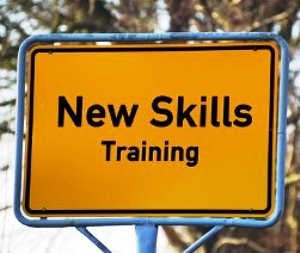Vocational School
How to Choose the Right One
 Choosing to work in a new trade and enroll in a vocational school are important decisions that will profoundly impact your future career. But with so many trade schools to choose from, just how do you go about finding and selecting the right one? Not only do you need to make sure that you will receive the comprehensive training necessary to succeed in your new field, but also that the school is reputable and well regarded. Some students make the error of selecting a vocational program just because the campus is closest to their home or place of employment. Others may gravitate to the one that charges the lowest tuition. Naturally the location and cost of the training are important considerations when evaluating school options, but they should not be the only ones. Additional factors such as accreditation and the reputation of the school are important as well. So before you begin evaluating and comparing trades schools, you will need to know what questions you should be asking in order to get the information you need to make a final choice. We will cover some of those questions later in this article. But first, let’s look at some of the trade options that are available as well as the availability of online programs.
Choosing to work in a new trade and enroll in a vocational school are important decisions that will profoundly impact your future career. But with so many trade schools to choose from, just how do you go about finding and selecting the right one? Not only do you need to make sure that you will receive the comprehensive training necessary to succeed in your new field, but also that the school is reputable and well regarded. Some students make the error of selecting a vocational program just because the campus is closest to their home or place of employment. Others may gravitate to the one that charges the lowest tuition. Naturally the location and cost of the training are important considerations when evaluating school options, but they should not be the only ones. Additional factors such as accreditation and the reputation of the school are important as well. So before you begin evaluating and comparing trades schools, you will need to know what questions you should be asking in order to get the information you need to make a final choice. We will cover some of those questions later in this article. But first, let’s look at some of the trade options that are available as well as the availability of online programs.
It Takes Just a Few Minutes to Choose a New Trade and Start Your Career Below
Vocational School Trade Options
 There are an abundance of trades to choose from in vocational schools that provide rewarding and good paying careers. Perhaps you have already decided on one that you have long wished to pursue. For example, maybe you have always enjoyed working on your car and have thought about using that talent to earn a living as an auto mechanic. Or maybe a family member has had a long and successful career in a particular trade or vocation and you would like to follow in his or her footsteps. Whatever your motivation is for entering a trade, there is likely a program available that will provide the training you need. Following is just a small representation of the vocational training programs that are available.
There are an abundance of trades to choose from in vocational schools that provide rewarding and good paying careers. Perhaps you have already decided on one that you have long wished to pursue. For example, maybe you have always enjoyed working on your car and have thought about using that talent to earn a living as an auto mechanic. Or maybe a family member has had a long and successful career in a particular trade or vocation and you would like to follow in his or her footsteps. Whatever your motivation is for entering a trade, there is likely a program available that will provide the training you need. Following is just a small representation of the vocational training programs that are available.
- Auto Mechanic
- Heating and Cooling (HVAC) Tech
- Plumber
- Electrician
- Welder
- Truck Driver
- Aircraft Maintenance Tech
- Lab Technician
- Construction Manager
All programs will have varying costs and completion times depending on the trade, credential earned and school. Some of the programs may be completed in weeks, while others will require months or even 2 or more years of training. All of these factors should be taken into account before choosing a vocation and school.
Online Trade Schools
Online schools have become very popular with students and more and more accredited programs are becoming available. Although learning online is a very convenient and accessible way to earn a certificate or degree, it may not be the best option for all trades or vocations. For example, learning to drive a tractor trailer is not something that you can do online, nor is learning how to weld. These are skills that must be learned through hands on training and by doing it, not by reading about it or watching videos. But components of the training may be appropriate for online education, such as learning driving and safety regulations for trucking schools or learning about metallurgy or how to read blueprints for welding schools. Some programs will combine online training with on campus lab work, such as for electrician or HVAC schools. So it is very important to find out before enrolling in an online program for any trade that there is an appropriate amount of practical training devoted to the curriculum. One way to help ensure that a trade school program is both appropriate for online learning and provides comprehensive practical training is to confirm that it’s accredited by a nationally recognized accrediting organization (more on accreditation later). For those vocations that are appropriate for online training, it can be a convenient way for those with limited time to learn a new trade.
Questions to Ask Vocational Schools
 After deciding on the trade you are interested in some cases the type of credential you would like to earn, you can begin your due diligence process of evaluating and comparing vocational schools. As we alluded to at the beginning of this article, there are several questions that you should ask each school in order to properly make your comparisons. It’s not enough to choose a school based on proximity or the lowest tuition. Although cost and location should factor into your decision, there are other important considerations as well. For instance, whether or not the school and program are both accredited, and what the reputation is of each. These and other qualifications that you should address are covered in the following list of questions.
After deciding on the trade you are interested in some cases the type of credential you would like to earn, you can begin your due diligence process of evaluating and comparing vocational schools. As we alluded to at the beginning of this article, there are several questions that you should ask each school in order to properly make your comparisons. It’s not enough to choose a school based on proximity or the lowest tuition. Although cost and location should factor into your decision, there are other important considerations as well. For instance, whether or not the school and program are both accredited, and what the reputation is of each. These and other qualifications that you should address are covered in the following list of questions.
Is the Trade School Accredited? It’s important that the trade school you enroll in is accredited by an organization recognized by either the U.S. Department of Education or the Council on Higher Education Accreditation. Accreditation for the program is typically given by a professional trade association or other non-governmental organization, such as the Accreditation Board for Engineering and Technology. For some specialty schools, such as for truck driving, certification of the program is more prevalent and is offered by the Professional Truck Driver Institute (PTDI). Accreditation not only helps ensure that you will receive a quality education, but may be required to qualify for licensing or certification. Financial aid and student loans may also require that the school be accredited. And some employers will only hire graduates from accredited schools for entry level positions.
Is the School Licensed? Another way of determining if the vocational or technical school you are considering is reputable is by finding out if it is properly licensed. Licensing is usually regulated and controlled by state agencies, such as your State Department of Education. Be sure to ask the schools on your list which state agency is responsible for their licensing and then check to ensure that their licenses are in order.
How Long in Business? Another benchmark to help measure the quality of a trade school is how long it has been in business. A poorly rated or fly by night school typically will not be in business for very long. However, keep in mind that even the best of schools had to start from their first day of operation, so only use it as one of several qualifications for each school you are considering.
What is the School’s Reputation? Before enrolling in a vocational school or community college, find out what the school and program’s reputations are. This is particularly necessary if you are new to the field and employers will have to rely almost exclusively on the quality of your training rather than job experience. You can research the quality and ranking of schools by using one or more rating services, such as provided by U.S. News and World Report. You can also ask potential employers in your area what their opinions are of the schools you are considering. Keep in mind that a school may not be highly ranked but their program that you are interested in may be well regarded.
What is the School’s Success Rate? Find out before enrolling in any vocational training program what percentage of students actually complete it. If the program has a low retention rate, or conversely a high drop-out rate, view that as a red flag. It’s also important that the schools you are considering have job placement programs. For those students that do graduate, find out what the job placement rates are. Make sure that the placements are in jobs related to their field of training. Ask what the average starting salaries are as well. Low graduation rates, placement rates or average starting salaries are all indications that the program may not be providing the highest quality of training.
Do They Sponsor Apprenticeship Programs? Many trade programs are taught in conjunction with an apprenticeship or an internship program. Apprenticeships are often part of the initial working experience, for instance new plumbers and electricians begin their careers as apprentices. And internships provide valuable hands-on experience working outside of the classroom environment. Both programs also help establish relationships within the professional communities and provide employment opportunities. Find out if the schools you are considering will help place you in an apprenticeship or internship.
Are there Modern Facilities and Equipment? For many trades the equipment and facilities will be an important part of the training. Therefor it’s important that you make sure that the school you enroll in has modern labs or workshops as well as the latest equipment to train with. It may be worth visiting the campus and facilities prior to enrolling. If you don’t know what to look for, do research beforehand. One option is to contact some companies that you may be interested in working for after graduation and ask what tools and equipment they are using so that you can be properly trained.
Where is the School Located? If you will be commuting from your home to classes, then the location of the vocational school will be important. Take into account not only the distance, but the traffic levels for the routes and the times you will be driving. If you are considering schools that are out of your area or in another state, be aware that there may be higher tuition fees for non-resident students. This is especially true for community colleges and state colleges or universities. Also, if the school has a job placement program, often most of their employer contacts are in their local areas.
What is the Average Class Size? To receive as much individual instruction as possible, it’s better if the trade school classes are smaller in size. Find out what the typical teacher to student ratios are. The more students per teacher, the less one-on-one attention you will likely receive. You may even want to monitor one or more classes to get a feel for the teacher and student interaction. You can speak with some of the students and instructors to get their feedback as well.
Are Classes Accessible? Finally, it’s important to check the class schedule for the trade school you choose before enrolling. This is especially necessary if you plan on working full or part-time while attending classes. If your working hours necessitate that you attend evening or weekend classes near your home, then confirm that they are available. And if you can only attend school on a part-time basis, make sure that is an option. Also find out what the options are available for making up classes missed due to work or other obligations.
Find Out More About Vocational Schools
Find the Right Trade School for your Certificate or Degree
It’s important that you enroll in the right trade or vocational school in order to receive the proper training to succeed in your new career. As we have covered in this article, there are several questions that you need to ask the schools you are considering in order to make an informed decision. And it’s probably a good idea to visit the school or schools you are most interested in so that you can view the facilities and speak with some of the faculty and students. But however you make your selection, as long as you pick the right school and receive the proper training, you too can become successful in your new trade or vocation.
